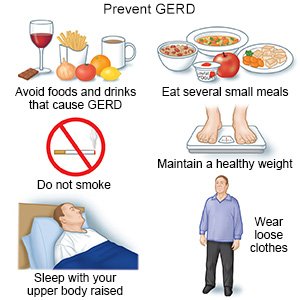Chronic Cough
Medically reviewed by Drugs.com. Last updated on Aug 4, 2025.
A chronic cough is a cough that lasts more than 4 weeks in children or 8 weeks in adults.
DISCHARGE INSTRUCTIONS:
Call your local emergency number (911 in the US) for any of the following:
- You cough up blood.
- You faint when you cough.
- You have trouble breathing.
Call your doctor if:
- You have new or worsening symptoms.
- You have severe pain when you take a deep breath.
- You become very tired after a coughing fit.
- You have trouble sleeping because of the coughing.
- You have questions or concerns about your condition or care.
Related medications
Treatment options
The following list of medications are related to or used in the treatment of this condition.
Medicines:
- Medicines may be needed to stop your cough. You may also need medicine to treat allergies or acid reflux, or decrease swelling in your airways. If you have a respiratory infection, you may need antibiotics. Medicine may be given as a pill or to use in an inhaler.
- Take your medicine as directed. Contact your healthcare provider if you think your medicine is not helping or if you have side effects. Tell your provider if you are allergic to any medicine. Keep a list of the medicines, vitamins, and herbs you take. Include the amounts, and when and why you take them. Bring the list or the pill bottles to follow-up visits. Carry your medicine list with you in case of an emergency.
Self-care:
- Prevent acid reflex. Acid reflux can make your chronic cough worse. Raise your head and upper back when you sleep. Place 2 or more pillows behind your head or sleep in a recliner. Do not lie down for at least 1 hour after you eat. Do not have foods or drinks that increase heartburn. Ask your healthcare provider for other ways to prevent acid reflux.

- Do not smoke. Encourage your adolescent child not to smoke. Nicotine and other chemicals in cigarettes and cigars can cause lung damage. They can also make your cough worse. Ask your healthcare provider for information if you currently smoke and need help to quit. E-cigarettes or smokeless tobacco still contain nicotine. Talk to your healthcare provider before you use these products.
- Stay away from secondhand smoke. Do not let people smoke in your car, home, or near your child. Do not stand near someone that is smoking. This includes anyone that is smoking an E-cigarrete.
- Avoid anything that triggers your allergies or irritates your throat. Allergens and irritants can make your chronic cough worse. Allergens may include dust mites, pollen, pet dander, or mold. Wear a mask if you work around pollutants or irritants. Ask your healthcare provider for more ways to decrease your exposure to allergens or irritants.
- Drink plenty of liquids as directed. Liquids may help relieve throat discomfort that causes you to cough. Add honey to tea or hot water to help ease your throat pain. Ask how much liquid to drink each day and which liquids are best for you.
Follow up with your healthcare provider as directed:
You may need to return for more tests. Your healthcare provider may refer to you other specialists. Write down your questions so you remember to ask them during your visits.
© Copyright Merative 2025 Information is for End User's use only and may not be sold, redistributed or otherwise used for commercial purposes.
The above information is an educational aid only. It is not intended as medical advice for individual conditions or treatments. Talk to your doctor, nurse or pharmacist before following any medical regimen to see if it is safe and effective for you.
Learn more about Chronic Cough
- Acute Bronchitis in Adults
- Allergies, Cough/Cold Medications and Alcohol Interactions
- Anticholinergic Drugs to Avoid in the Elderly
Treatment options
Care guides
Symptoms and treatments
Medicine.com guides (external)
Further information
Always consult your healthcare provider to ensure the information displayed on this page applies to your personal circumstances.
